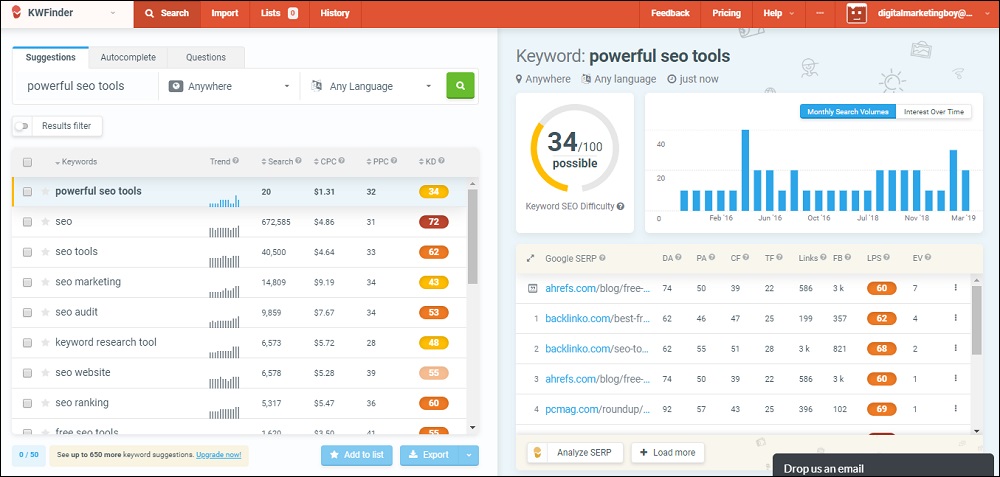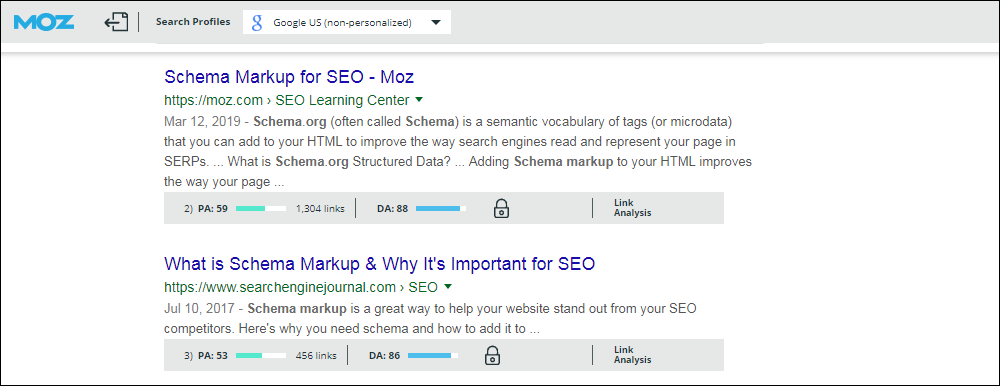


Keyword research helps you to optimize the content of your web pages efficiently. The phrases and words that describe your content are termed as 'Keywords'. Different types of keywords are: Short Tail contains one or two words and these are broad terms with high search volume. Middle Tail contains three or four words and these are more specific with less search volume as compared to Short Tail keywords. Long Tail contains four or more keywords and is more detailed with lower search volume. For instance: The average Search Volume of keyword schema markup (Short Tail) is 4400 and keyword schema markup SEO (Middle Tail) is 110. Keyword Research consist of the following steps:
A. Hunt for Ideas: You would require some ideas to initiate your keyword research. The selection of keywords for optimization should always rely on the interests of your customers. Digital Marketing Boy suggests you access online places such as Quora, Reddit, Emails, Blogs, Facebook Groups, Wikipedia and Forums.
B. Explore Keywords: Google Keyword Planner and KWFinder are the Powerful SEO Tools for you to explore several keywords related to your business.
The metrics of KWFinder: Trend indicates the performance of keywords in the last 12 months. Search metrics to know the average monthly searches of targeted keywords. CPC display average cost per click of keywords as per the Google AdWords. PPC for the competition level in PPC advertising. KD describes the SEO difficulty of a keyword. SEO experts can also use the Filter in the KWFinder tool to exclude the keywords that are not relevant to your business.
You can also analyze the Google SERP statistics section of KWFinder and it consists of important metrics: list of websites ranking in Google search engine for your selected keyword. Domain Authority (DA) predicts the position of your website in search engines. Page Authority (PA) predicts a specific web page rank in Google. As per MozRank, MR indicates a link popularity score while MT measures the trustworthiness of the link. Links define the number of external authority passing links to URL. FB is the Facebook shares for the URL and LPS is the overall link profile strength. EV means estimated visits per month on this Search Engine Results Page (SERP) position.

C. Analysis of Search Volume and Competition: There is no use to perform website optimization for keywords that are not searched by search engine users. Thus this step is crucial in an SEO campaign. You can retrieve the search volume of each keyword through Google Keyword Planner. Each web page has more than one keyword and search volume is always approximate.
Knowing the competition for your targeted keyword is a must in an SEO process. Digital Marketing Boy suggests you use MozBar Chrome Extension for competitive analysis. Important metrics of MozBar are: Page Authority (PA), Domain Authority (DA), Content and Link Analysis. Consider adding your targeted keyword in Title Tag, Heading, the content of web page and URL for effective optimization.
A new website starts with zero domain authority and you should create more content of high quality. This will help you to gain high authority links. SEO experts must regularly check your domain and page authority.

Search engines always lookout for the most relevant and detailed content. Write content for topics and do not stuff keywords. Review the above steps and initiate your SEO Keyword Research.